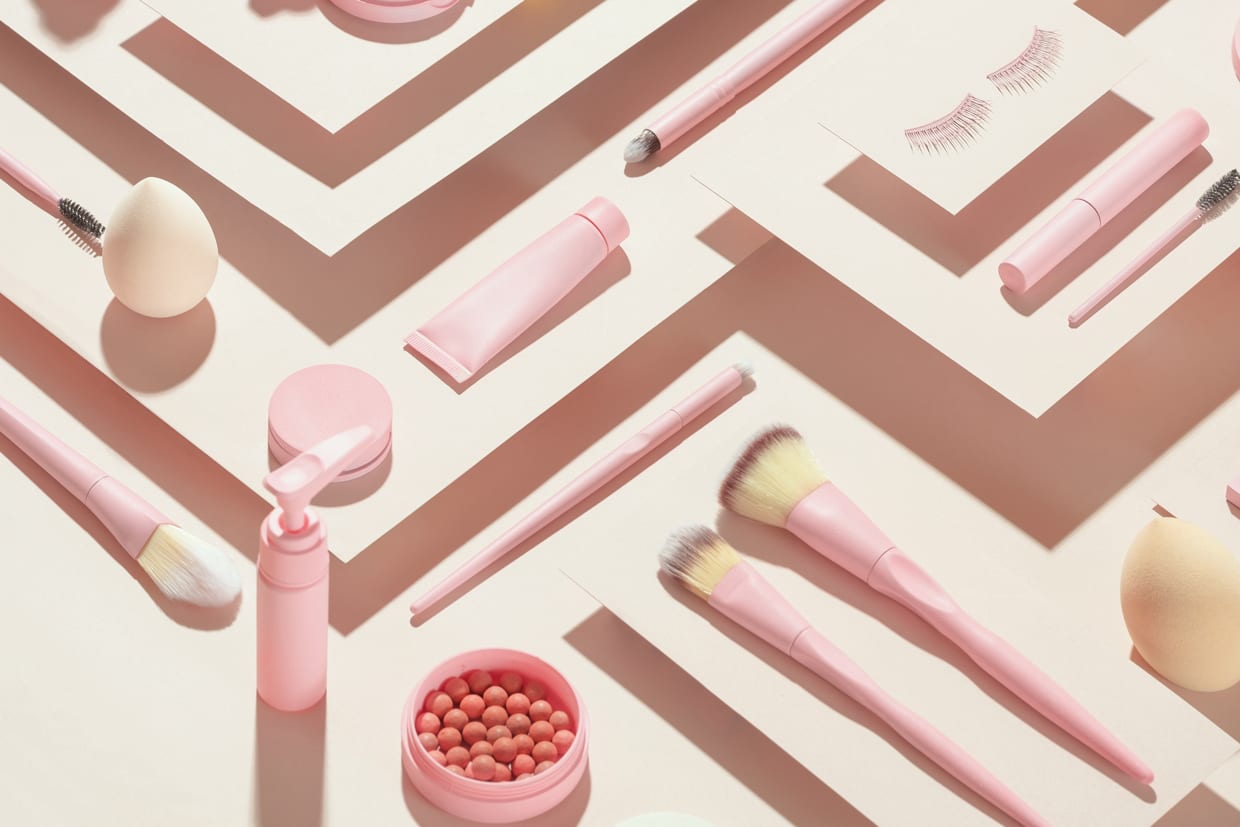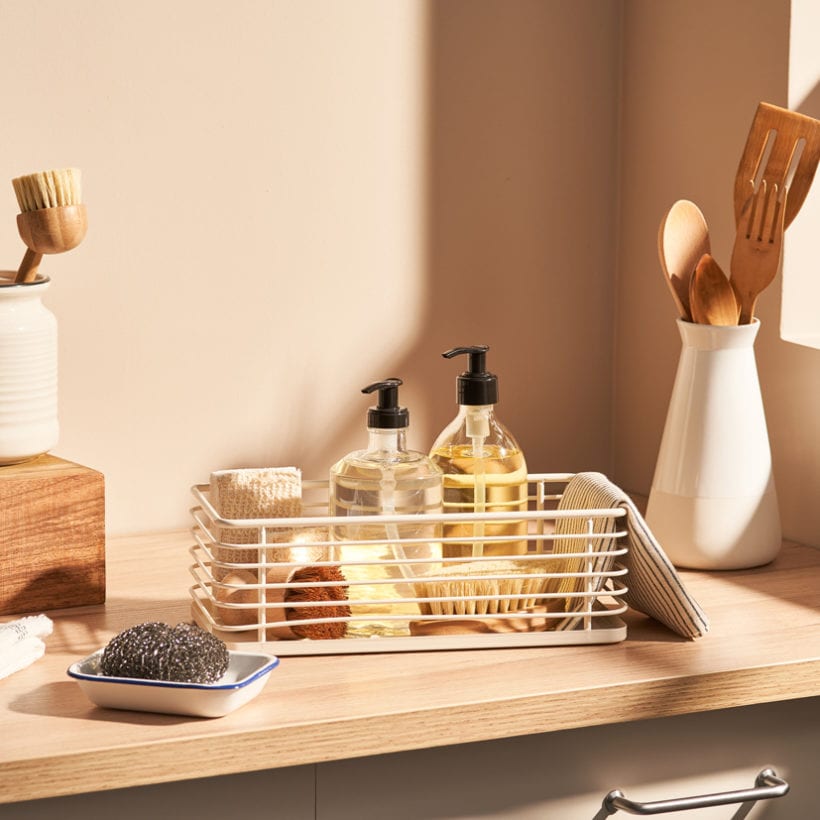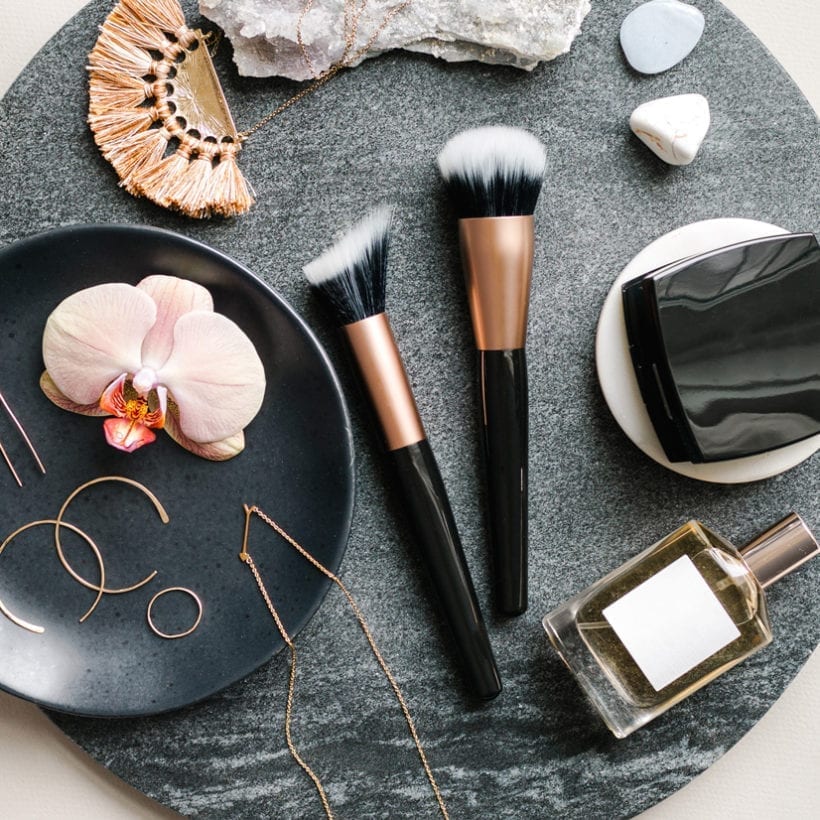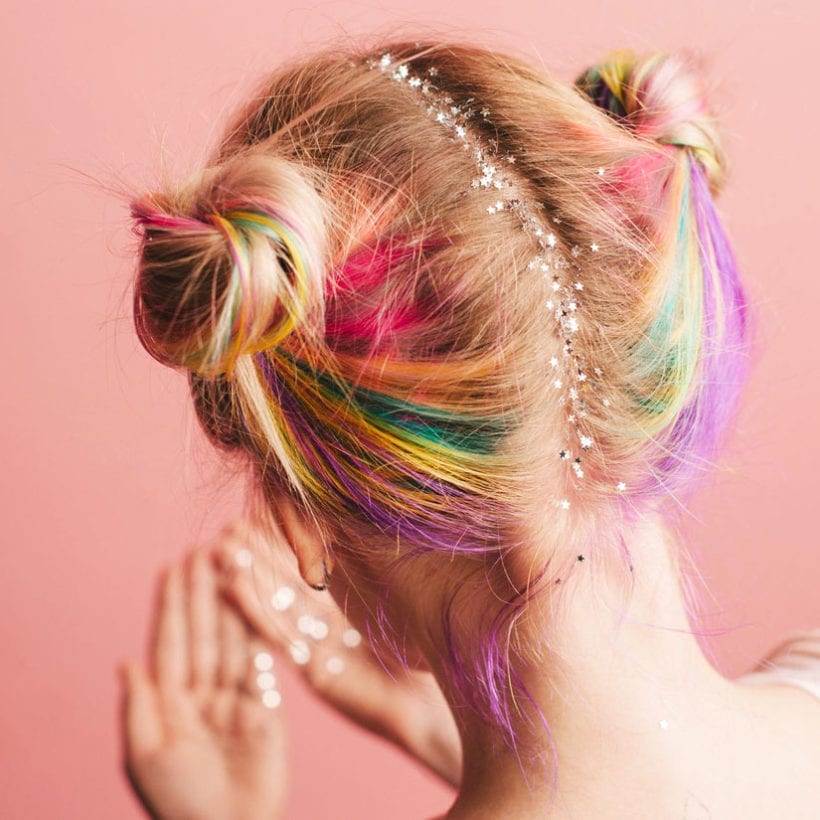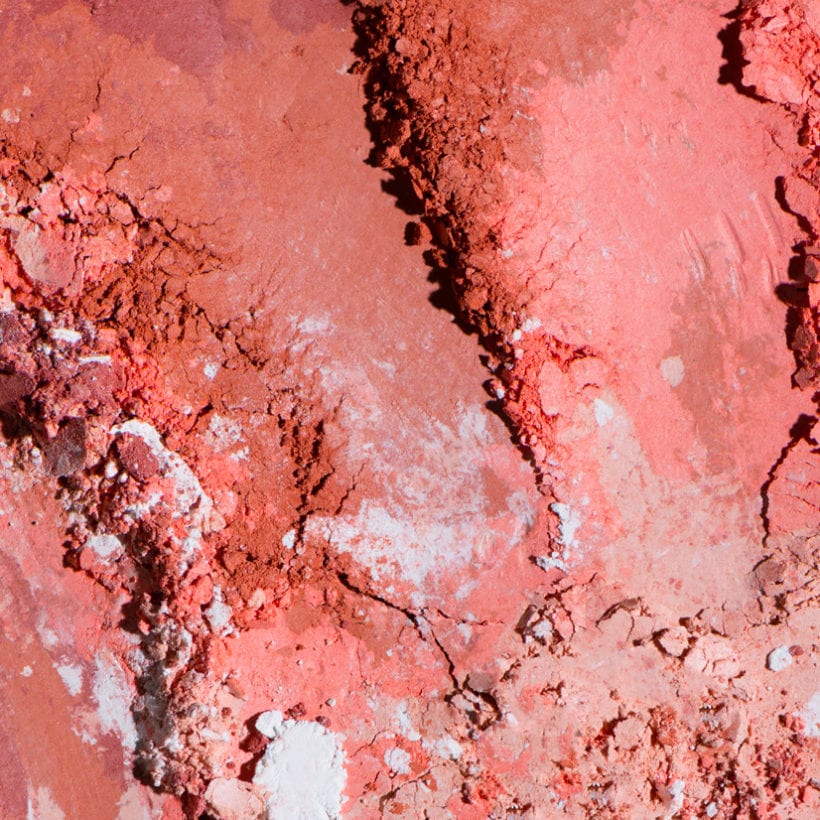A change in weather — or you know, a pandemic that forces everyone to stay home — is a perfect reason to finally get around to organizing your beauty products. Research from Aston University found that nine out of 10 makeup bags contain harmful germs. They tested 467 donated makeup products and found some contained dangerous bacteria like E. Coli and Staphylococci.
That type of dirt, bacteria and grime is disastrous for your skin. “Everything that has touched your face picks up dead skin cells and bacteria that [are] already on the skin. This then gets passed back and forth between your makeup and tools, and they can become a breeding ground for nasties such as spots, cold sores and other little infections,” says makeup artist Hayley De Beers.
So, where do you start? A beauty product’s shelf life boils down to the formula, how often you use it, how it is packaged (if it is in a pump, it is not as exposed to oxidation and bacteria) and how you store it. Many skincare, makeup and hair brands include a Period After Opening (PAO) symbol on their packaging to indicate how long the product will remain fresh after the first use. The logo looks like an open jar featuring a written number of months or years.
No PAO mark? The look, feel, and smell of the product can give you a strong hint it’s time to toss:
-
- Has it changed color?
- Does it smell odd?
- Does it have a different texture?
- Does it feel different on your skin?
Or, use the cheat sheet below. When in doubt, throw it out (especially for natural beauty products that do not have conventional preservatives).
When to Toss: Eye Makeup
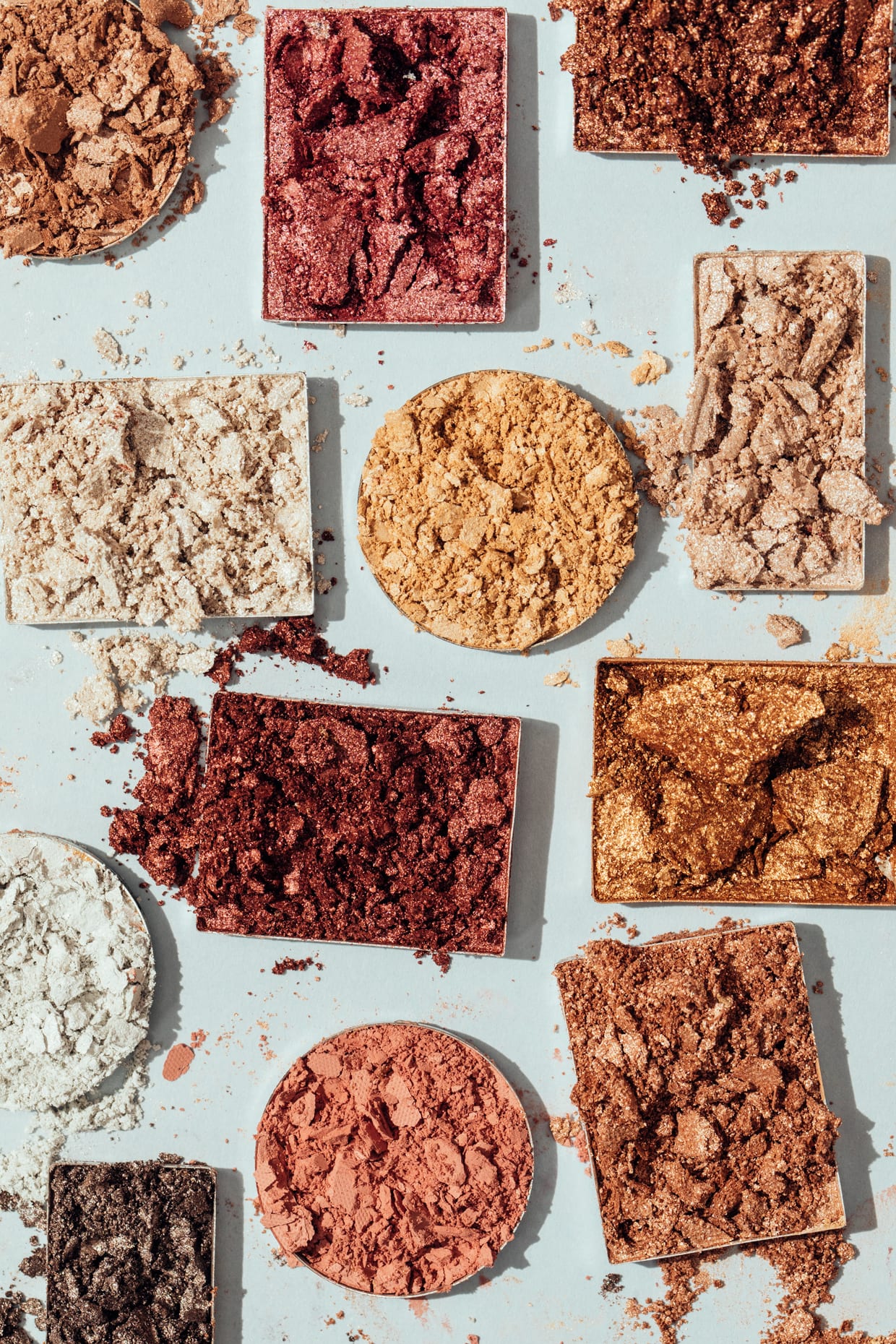 Gel or liquid eyeliners: 6 months to 1 year
Gel or liquid eyeliners: 6 months to 1 year
Brow and eye pencils: 1 year
Mascaras: 3 months
Eye shadows: 3 to 6 months
Eye infections can easily arise from makeup, so it is best to be stringent about expiration guidelines. If you already have an eye infection, you should throw out any makeup that has been in contact with your eyes.
Pencils have the longest shelf life since they are continuously being sharpened, so you will likely use your makeup pencils before their expiration date anyway. While powder shadows can last as long as powder blushes (more on that below), you should replace them often as they are still eye products. Also, avoid pumping your mascara wand as it pushes air into the tube, causing it to dry out and force bacteria into the container. Telltale signs your mascara has gone bad is if it smells bad or has gone clumpy.
When to Toss: Lip Products
Lipsticks: 1 year
Lip liner pencils: 1 year
Lip glosses: 18 months to 2 years
Lip balms: 1 year
Desperate to extend the life of your favorite lipstick just a little longer? You can keep your lipstick sterile and safe with a lighter or match. “Pass the lipstick through the naked flame for a few seconds,” makeup artist Amanda Clarke suggests. Or swipe off a layer with a napkin and spray them with a little bit of alcohol to keep it sanitized. If your lip balm contains sunscreen (like zinc oxide or titanium dioxide), they will only last a year, but if they do not have any skin protectants, they may last longer.
When to Toss: Complexion Products
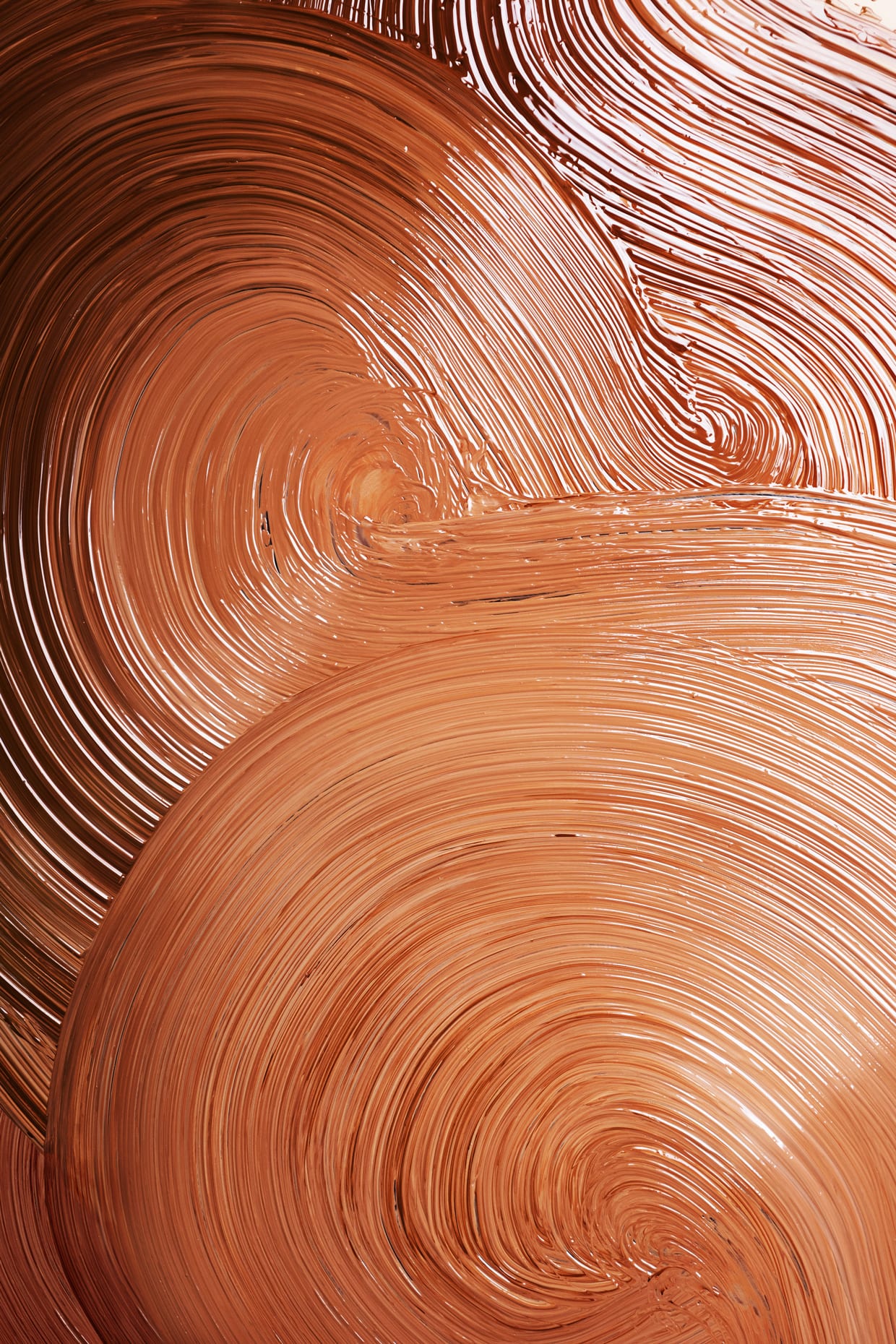 Oil-free foundation: 1 year
Oil-free foundation: 1 year
Powder foundation, blush and bronzers: 2 years
Cream compact foundation, blush and bronzers 18 months
Concealers: 1 year to 18 months
Primers: 18 months
Powdered products last the longest out of your makeup products. If they are not causing you issues (like acne or irritation), use them until they are finished. Clarke recommends buying a small spray bottle that you can fill with alcohol, like isopropanol, to keep powder products fresh. “Spritz on powders after you’ve been sick, or you know that you’ve touched the products with your fingers a lot.” Oil-based makeup is ready to be tossed when the oils rise to the top of the bottle. It will look streaky and uneven on your face no matter what tools you use to apply.
It is important to keep your makeup application tools clean and avoid touching your complexion products with your fingers. Pump formulas keep your fingers and bacteria out of your makeup — a mixing palette and spatula can help keep germs at bay.
When to Toss: Nail Polish
You can hang on to your nail lacquers for up to two years. Storing your nail polish in direct sunlight will make the formula separate and become discolored faster, so it is best to keep it in a cool, dry place.
When to Toss: Makeup Tools
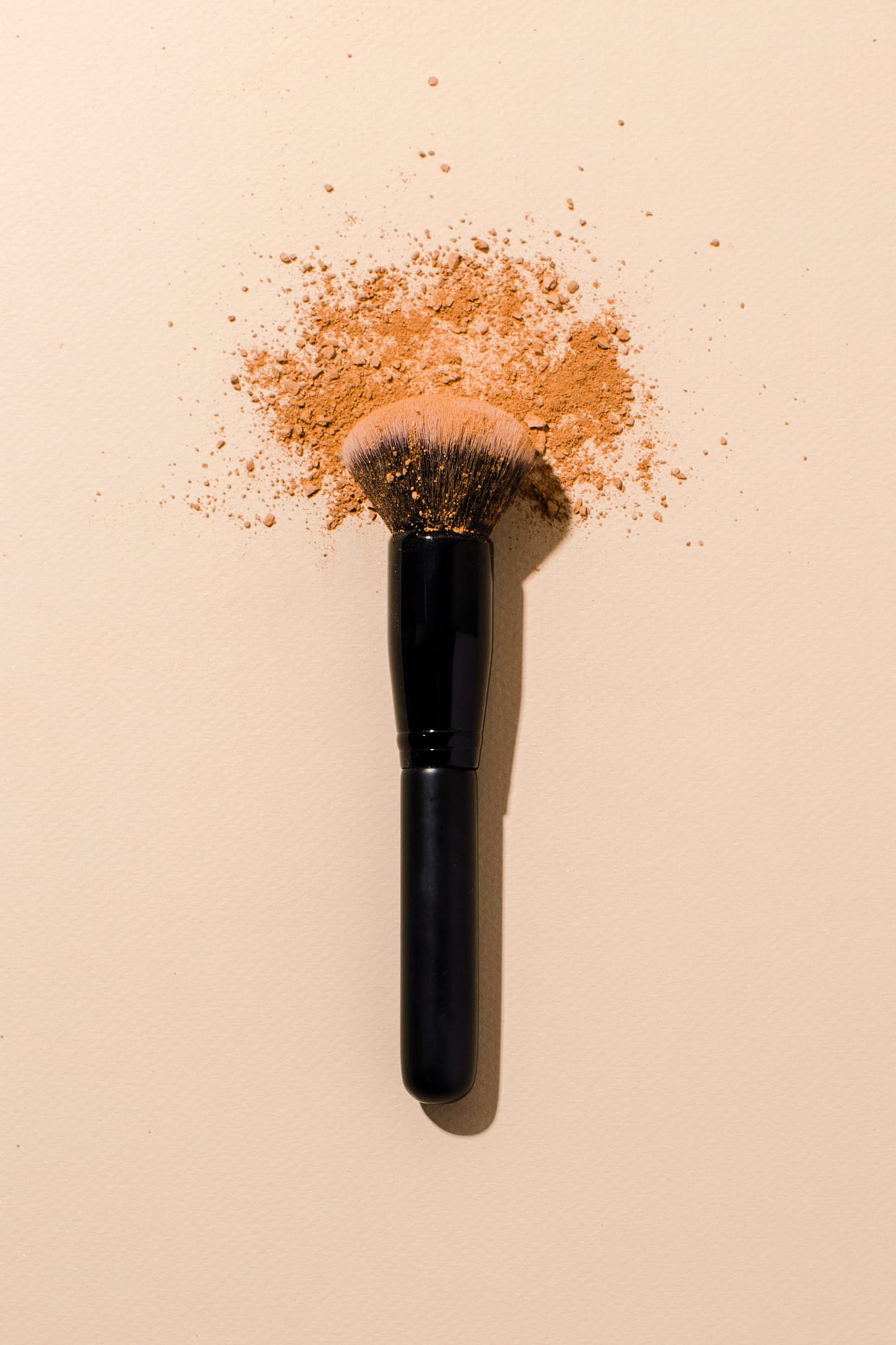 Quality brushes will last you years and years as long as you take care of them properly. Wash your brushes once a week — especially your foundation and concealer brushes. Clean brushes also help prevent breakouts and allow for flawless makeup application.
Quality brushes will last you years and years as long as you take care of them properly. Wash your brushes once a week — especially your foundation and concealer brushes. Clean brushes also help prevent breakouts and allow for flawless makeup application.
Clarke recommends washing your brushes in warm soapy water (swirl them in the water until they run clear) and leaving them flat to air dry. If you don’t want to buy a specific makeup brush cleanser, your favorite face wash or a gentle, fragrance-free shampoo like Johnson’s Baby Shampoo can work. In between weekly washes, Clarke advocates a quick spritz of antibacterial spray on brushes after use to stop germs in their tracks.
When to Toss: Makeup Sponges
Toss disposable sponges (the inexpensive kind that you get in bulk) after each use. Quality sponges last up to three to four months with daily use. To make sure you are getting the most out of your sponge, you can wash it weekly with liquid soap. Massage it into the palm of your hand and continuously squeeze your sponge until the water runs clear.
There is also the handy microwave hack: Place the sponge in a mug with liquid soap and water and put it in the microwave for one minute (be careful when lifting the sponge out of the hot water). Repeat this process with clean water and new soap each time until your sponges look sparkling.
When to Toss: Your Makeup Bag
Do not forget your makeup bag itself. If your makeup bag is a machine-friendly material, then popping it in the wash is the best bet. If not, you can wipe it clean using a cloth or sponge with water and antibacterial spray.
When to Toss: Skincare Products
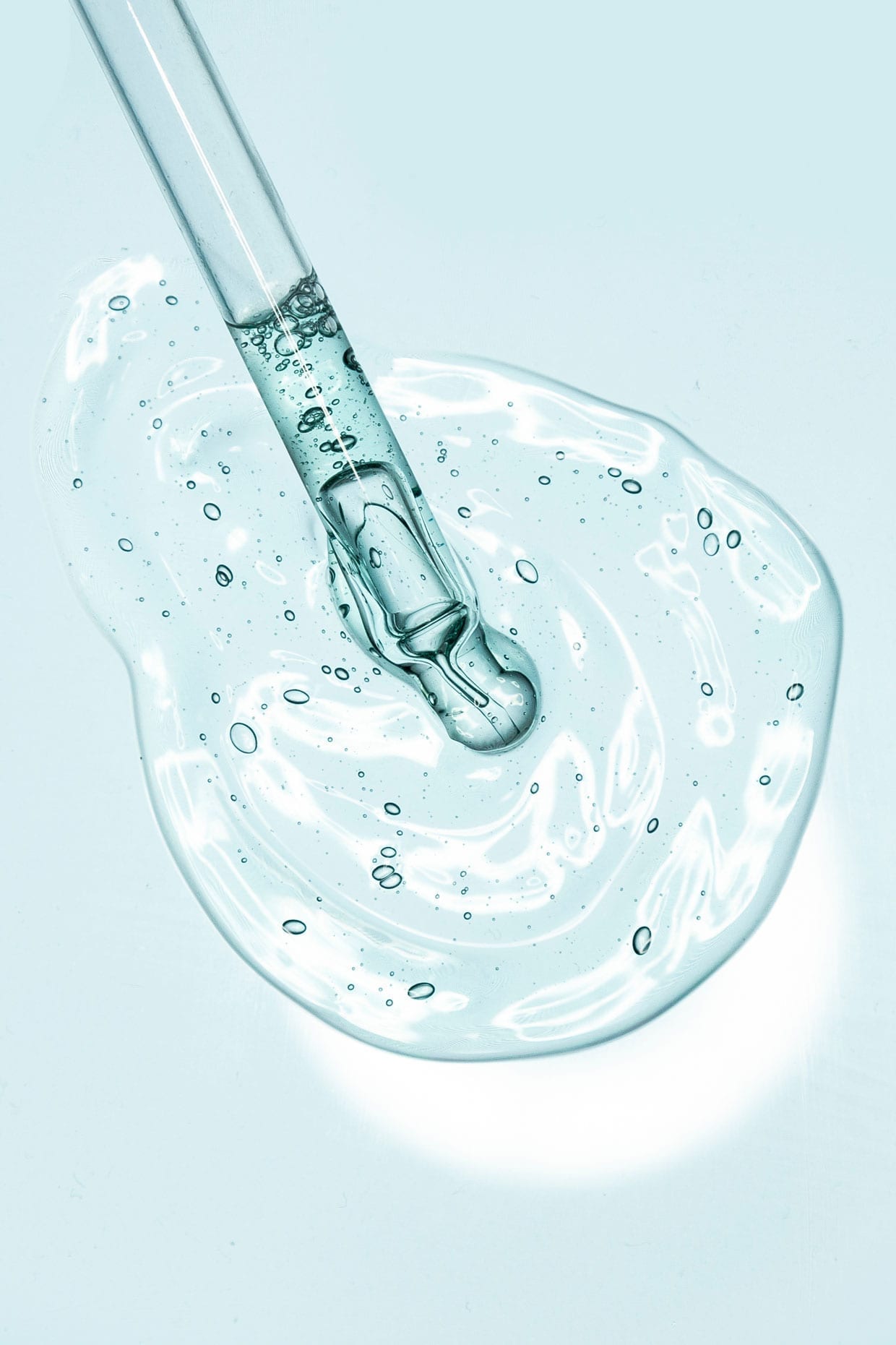 Cleansers and moisturizers: 2 to 3 years (unopened); 1 year (opened)
Cleansers and moisturizers: 2 to 3 years (unopened); 1 year (opened)
Sunscreens: 2 to 3 years (unopened); 6 months to 1 year (opened)
Treatments (i.e., face serum, retinoids, AHAs or vitamin C) in a pump/tube: 3 years (unopened); 1 year (opened)
Treatments in a jar: 1 year (unopened); 6 months (opened)
Cream or gel masks: 2 to 3 years (unopened); 1 year (opened)
Clay masks: 2 to 3 years (unopened); 6 months (opened)
As a general rule of thumb, unless it is a treatment, most unopened skincare products can last up to three years. Once you open a product and introduce it to oxygen, it loses its effectiveness and potency.
The lifespan of a skincare product comes down to its ingredient list. “It depends on what preservatives they are using, and the water content of the product. Typically, water-based products like creams and gels have a shorter shelf life than oil-based products like waxes and balms,” De Beers says. Since treatments contain active ingredients like vitamin C and retinol, they have a shorter shelf life.
Correctly storing your skincare products will maximize their potency for the longest possible time. Heat and light are their enemies, and they break down and oxidize faster if stored in warm or bright places.
When to Toss: Perfumes
Perfumes can last anywhere from six months to even 10 years, depending on the notes of the fragrance. Higher alcohol content and heavier base notes (think woody ones like patchouli and vetiver) last longer than citrus or floral notes, which evaporate more quickly.
To extend the life of your perfumes, make sure the cap is on tightly (air causes perfume to oxidize) and store them somewhere dry, cool and dark.
When to Toss: Hair Products
Most unopened hair products across all categories are considered to be safe to use for up to three years as long as they are stored in a cool, dark place.
Once used, anything that comes in an aerosol can, particularly if it contains alcohol (i.e., dry shampoo, hair spray), has a longer shelf life because of its limited exposure to air. Meanwhile, stuff in a jar (like pomades, gels, and styling creams), is going to spoil more quickly since it comes into contact with your fingers that carry bacteria.
We only recommend products we have independently researched, tested, and loved. If you purchase a product found through our links, Sunday Edit may earn an affiliate commission.
